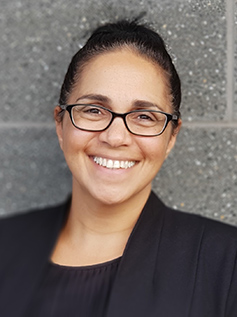Young people may underestimate the benefits of a university degree. Often they approach the decision to go (or not to go) to university by only looking at one side of the equation. They become preoccupied with the costs involved, ignoring the benefits that can be gained. Yes, there are monetary outlays (such as a HECS debt) and non-monetary sacrifices (such as the time required to study).
For young people, these costs are easier to comprehend than future benefits such as improved job security, better working conditions, personal fulfilment and an enhanced quality of life. The decision to go (or not to go) to university is not easy. Aim to help your child to make an informed decision rather than a quick decision.
How does your child respond to difficult decisions?
Young people have under-developed decision-making abilities simply because they have not had to make as many decisions as adults. As a result, they do not necessarily know how to approach a complex decision.
When faced with the dilemma of whether to go to university (or not), they may become overwhelmed. Research shows that when people are faced with a stressor, they respond in different ways. Some young people cope with stress by trying to avoid a decision all together. Others try to take shortcuts to fast-track a decision. Four common coping responses are:
- Procrastination—being the wishful belief that nothing will be lost by delaying a decision;
- Buck-passing— whereby they shift responsibility for the decision to others (such as yourself) based on the wishful belief that nothing will be lost by outsourcing the decision;
- Rationalisation—where they are selectively inattentive to relevant information and spend most of their time trying to convince themselves that ignoring information is the right thing to do; or
- Shortcutting—whereby they frantically search for a solution, sometimes adopting the first decision that comes to mind or a passing recommendation of a friend as this, in effect, provides a fast-tracked solution which immediately relieves the stress of making a complicated decision.
Do any of those sound familiar? As parents, it is vital in the first instance to see these behaviours for what they are—a coping response to a stressor by a young person with under-developed decision-making abilities.
How to help your child with tough decisions
- Talk with them about how worthwhile endeavours often involve some level of risk and uncertainty. A crucial part of becoming an adult is understanding themselves and how they handle tough decisions.
- Explain to your child that avoiding or shortcutting a decision may bring quick relief; however, by taking the time to work through their options and square-up the costs and benefits of going to university they will make an informed decision and gain a life-skill in the process.
For more information about Professor Raciti’s research into how young people make career decisions, go to: ncsehe.edu.au/publications/perceived-risks-of-going-to-university/
About Professor Maria Raciti
Professor Maria Raciti is a Professor of Marketing at USC, Director of the Indigenous and Transcultural Research Centre, an Adjunct Fellow with the National Centre for Student Equity in Higher Education and was part of an Australian Government departmental taskforce assisting with the 2019 National Regional Rural and Remote Tertiary Education Strategy.
Related articles

How to support your child through the transition to university
25 FebStarting university is an exciting milestone, but it can also bring a mix of emotions for both students and parents.

